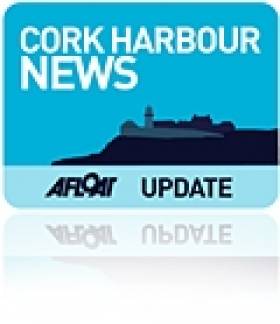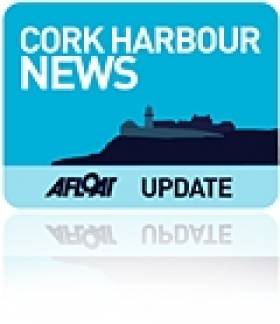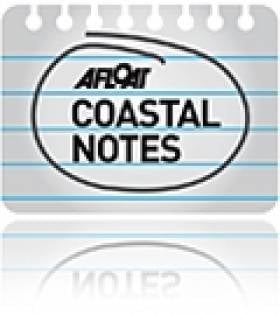Displaying items by tag: Cork Harbour Alliance for a Safe Environment (Chase)
Govt Signs Off On €40m to Clean Up Haulbowline Waste Site
The Government has signed off on a €40 million package to begin clean-up of the toxic waste site on Haulbowline Island in Cork Harbour, the Cork Independent reports.
As previously reported on Afloat.ie, the site at the former Irish Steel/Ispat plant - which closed a decade ago - contains an estimated 500,000 tonnes of waste, including toxic heavy metals and cancer causing materials, and has been blamed for the area's notoriety in having one of the highest cancer rates in Ireland.
The move comes after an ultimatum from the European Commission earlier this year to act on cleanup of the island.
Mary O'Leary, chair of the Cork Harbour Alliance for a Safe Environment (CHASE) lobby group, is cautiously optimistic about the Caninet's move on the issue, but said "the proof of the pudding is in the eating".
She told the Cork Independent: “Obviously we welcome the announcement, we have been fighting for 15 years for this. It is a guarded optimism because we were promised something in 2008. We didn’t see anything then so we will see what happens here."
O'Leary has been invited to join the steering committee that will oversee the cleanup.
“It is in all our interests that a solution is found for the former Ispat site," said Minister for the Marine Simon Coveney, "and I am determined to ensure that there are no further delays in finding a solution."
The Cork Independent has more on the story HERE.
'Three Months to Clean Up Haulbowline' Says Europe
The Government has three months to start cleaning the toxic waste site in Haulbowline or risk court action by the European Commission, the Irish Examiner reports.
The site at the former Irish Steel plant contains an estimated 500,000 tonnes of waste, including toxic heavy metals and cancer causing materials, and has been blamed for the area's notoriety in having one of the highest cancer rates in Ireland.
Two petitions from local groups totalling 5,500 signatures were presented to the European Parliament's petitions committee in Brussels on Wednesday, according to The Irish Times.
Mary O'Leary, chair of the Cork Harbour Alliance for a Safe Environment (Chase), outlined to the committe that in spite of four reports between 1998 and 2005 highlighting the dangers of contamination from the site, the Irish State has failed to regulate it or take clean-up action.
Petitions committee member Jean-Francoise Brakland said he "fully agreed" with locals' concerns over the "dangerous mess".
He also commended Environment Minister Phil Hogan for understanding "the difficulties and the challenges of environmental implementation" but cautioned that "we are not going to wait for the next 10 years".
Brakland promised that if no real action was taken on Haulbowline after three months, the commitee would seek a court judgement againt the State.
The Irish Examiner has more on the story HERE.
Campaigners Call on Govt to Back Aarhus Convention
Grassroots campaigners have called on the Government to ratify a UN convention on public access to decision-making on environmental issues.
According to The Irish Times, activists at the first All-Ireland Community Campaigns Gathering in Dublin recently claimed that coastal communities would have been “spared a decade of distress” if the Aarhus convention had been adopted into Irish law.
Ireland is one of just a handful of European countries yet to ratify the Aarhus convention, first adopted in 1998. Former Environment Minister John Gormley left office before fulfilling his promise to do so.
Mamie Bowen of the Cork Harbour Alliance for a Safe Environment (Chase) cited the approval of a foreshore licence for the Corrib gas pipeline, despite local concerns, as an example of the Government allowing private companies to "impose dangerous projects on communities.”
The common-cause gathering was attended by community activists from Cork, Derry, Donegal, Dublin, Kerry, Limerick, Mayo and Tyrone.
The Irish Times has more on the story HERE.































































